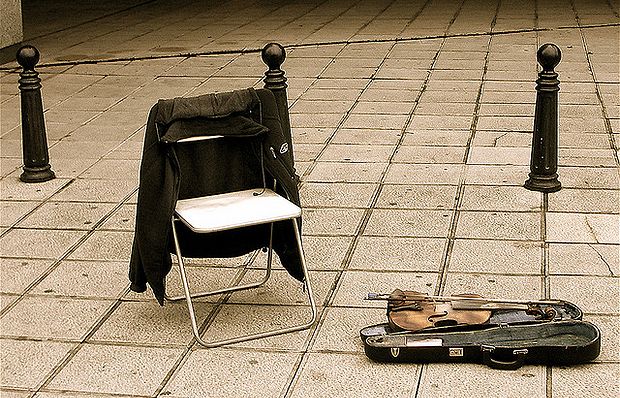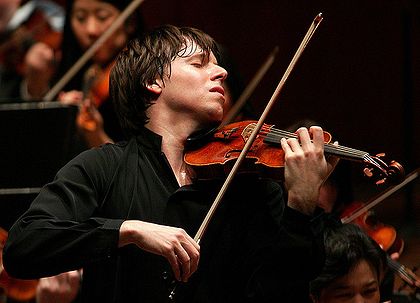Can you hear the music?
It was rush hour at the metro station L’Enfant Plaza in Washington, D.C. Hundreds of people were heading to their work on that cold January morning.
22 FEBRUARY 2015 · 22:30 CET

It was rush hour at the metro station L’Enfant Plaza in Washington, D.C. Hundreds of people were heading to their work on that cold January morning. Suddenly, a man wearing a pair of jeans, a long-sleeved T-shirt and a baseball cap takes a violin out of its case and begins to play. He leaves the case open, in front of him, depending on people’s generosity to receive some money for his performance. He starts with ‘Chaconne’, composed by Johann Sebastian Bach and described as one of the most complicated violin pieces to master. Three minutes went by until the first person briefly stopped to listen.
The man played a number of extraordinary classical compositions for approximately 45 minutes. In total, 1097 people walked by him during his performance. Only 6 people stopped to listen for a while and 20 more threw some money in the case, but kept walking. At the end, he had collected US$ 32.17.
The violin player was Joshua Bell. Have you heard of him? He is one of the finest musicians in the world and played at the station with a violin worth US$ 3.5 million. Two days before, Joshua Bell sold out at a theatre in Boston and the seats averaged US$ 100.00.

Bell’s ‘concert’ at the metro was actually an experiment conducted by the Washington Post, a respected North-American newspaper, and recorded by a hidden camera.[1]The underlying purpose was to identify whether we appreciate and recognize beauty and talent in an unexpected context. If you happened to be at the L’Enfant Plaza station on that morning, how do you think you’d have reacted? As I naturally tend to be late for my commitments, I’d probably have walked by!
God tends to communicate beauty and splendour through unusual situations and in unexpected contexts. The Bible overflows with narratives of people who were touched by God’s music in places and conditions they never expected. Elijah is one example. On a certain occasion he was frightened, tired and depressed, standing on a mountain called Horeb. So, according to the biblical account, ‘[...] a great and powerful wind tore the mountains apart and shattered the rocks before the Lord, but the Lord was not in the wind. After the wind there was an earthquake, but the Lord was not in the earthquake. After the earthquake came a fire, but the Lord was not in the fire. And after the fire came a gentle whisper.’[2] And then, only then, God spoke to Elijah.
Bono, U2 vocalist, describes this in this way: “…God is in the slums, in the cardboard boxes where the poor play house. God is in the silence of a mother who has infected her child with a virus that will end both their lives. God is in the cries heard under the rubble of war. God is in the debris of wasted opportunity and lives…”[3]
This perception has challenged me. I suppose the question is not whether God is playing, but whether I am willing to recognize his music on the metro stations of life. God seems to be playing the violin where we generally wouldn’t expect. What if we actually stopped to listen?
________________________________________
[1] http://www.washingtonpost.com/wp-dyn/content/article/2007/04/04/AR2007040401721.html
[2] 1 Kings 19:11-12.
[3] Keynote address at the 54th National Prayer Breakfast, Washington D.C., 2006.
Published in: Evangelical Focus - On the Journey - Can you hear the music?
